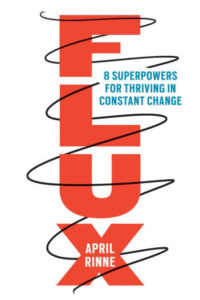I’m deeply steeped in the cognitive sciences, owing to a Ph.D. in cognitive psych. Fortuitively, this was at the time my advisor was creating the cognitive science program (and more). So I’ve a bias. Yet I also have a fair bit of empirical evidence that taking a cognitive perspective accomplishes things that are hard to do in other ways. So let me make the case that the cognitive perspective is more than just a useful one, but arguably a necessary one.
I‘ll start by reflecting back on something I wrote before, about virtual world affordances. At the time, platforms like Second Life were touting the advantages of an immersive navigable world. Of course, the promises were all-encompassing: everything would move to virtual worlds. In retrospect, it didn‘t eventuate. Why? I argue it’s because the cognitive overhead of virtual worlds means that there has to be a sustained value proposition, and that came from when you truly need 3D immersion and social.
Similarly, when I wrote my books on games and mobile, I focused on the cognitive impacts. The first reason was because technology was changing so fast that anything hardware-specific would be out of date before the book was published. The second is because our brains don‘t change that fast, so what works will work regardless of the technology .
Note that our understanding of cognition has changed. We‘re now in a ‘post-cognitive‘ era, where the notion that all our formal, logical thinking is done in our heads is wrong. Research is showing that we‘re far more ‘situated‘ than we think, and distributed as well. That includes distributed across external representations and other people! It’s very contextual, and it’s not all in our heads!
So these days, when I look at things, I try to look with a cognitive (ok, post-cognitive) perspective. I look to see how things align, or not, with how our brains work. When I evaluate learning technologies, for instance, I look to see how well they do things like provide meaningful practice: active and contextualized. You can also see when particular technologies (e.g. VR/AR/AI) will be valuable, and not. Similarly, when I look at workplace change proposals, I look at how well they reflect our mechanisms for adapting to change.
I‘ll argue that these perspectives are valuable. You can quickly see why most training doesn‘t work, cut through hype from vendors, create explanations about why myths are mythtaken, etc. You can save money, be more effective, etc when you align with how our brains work. I‘ve talked before about how there are gaps. This is the flip side, how to avoid those gaps, and do better. In short, you‘re better able to assist your organization in being more effective (and efficient).
That‘s why I‘m pleased that I am able to put these basics into the learning science book, and workshops. It‘s possible to get better at this sort of perspective. It‘s also possible to get it on tap as needed. However, it does take both the cognitive understanding and the experience in applying it. So, how‘s your cognitive perspective?
On a side note, I want to encourage you to consider my workshop at DevLearn on Make It Meaningful, a full day exploring how we make learning experiences deeply engaging (adding to effectiveness). This is also the topic of my online workshop through the Learning Development Accelerator. This is, to me, the most important topic to complement learning science. (Available as a book and workshop. ;) In both cases, I’m trying to help us stop making boring courses that people want to avoid, and suggest that this can be done for most any topic. It also leads to more effective learning outcomes! Hope to see you at one! (Of course, if your organization would like your own private version, let me know!)


